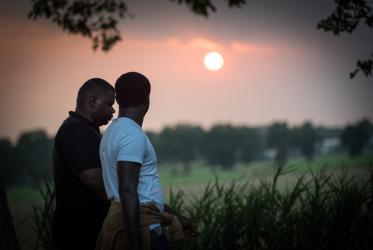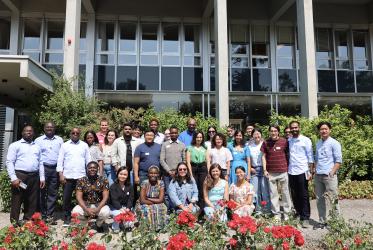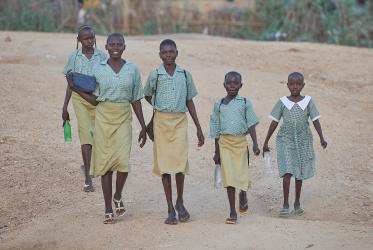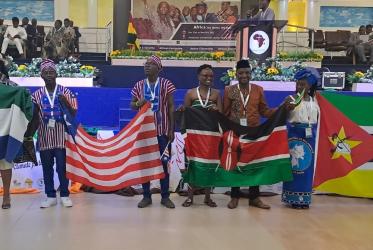When recalling the 2013 WCC General Assembly in Busan, South Korea, one of the things than often comes to my mind is Madang. In Korean culture, the Madang is a space in the traditional Korean household, where the members of a larger family meet not only to discuss serious issues, but also to spend time together, to rest, to laugh, and simply to enjoy each other’s company.
For us GETI participants, GETI was like a Madang. In our message to the 10th Assembly, we asserted that, to our mind, GETI was “a forum for discussion where none had to give up his or her own identity, but could still engage in ecumenical dialogue towards visible unity of the church.”
In Busan, we started our pilgrimage, together with other sisters and brothers, our fellow travelers on the way towards God’s justice and peace. And in Busan, also, we realized that persevering in this pilgrimage would be impossible without regular stops for rest, refreshment, and reflection.
One needs to sit down and quench one’s spiritual and bodily thirst. One needs to pause, to face one’s co-pilgrims, and to ask important, albeit sometimes uncomfortable questions.
How do we understand justice and peace towards which we are oriented? Are we really pursuing justice and peace, or merely our own grandiose, yet ultimately deceptive dreams? Are we still walking together with our sisters and brothers, or have we already lost them along the way? Do we not at times miss something important because of our predominant focus on justice and peace?
Therefore, it was good to get together with some former “GETIs,” and many new ones, to share these moments of rest and reflection in Berlin at what was called GETI’17 – Europe. There we talked and listened to each other, sang and prayed and shared meals together, and reflected on the central issues of reforming theology, migrating church, and transforming society.
And it is also good that some more “GETIs” will meet in Arusha, Tanzania, in early 2018 to take some rest from their pilgrimage and to learn, share, and celebrate together.
It is of utmost significance that GETI 2018 takes place alongside the Conference on World Mission and Evangelism since our God is a dialogical God who comes to human beings in their particular contexts, in their everyday joys and struggles, to transform their reality.
“Translating the Word, Transforming the World” is both an apt expression of this divine-human synergy and an invitation to join the pilgrimage. Therefore, Twendeni Arusha tukajifunze pamoja! Let’s go to Arusha and learn together!







